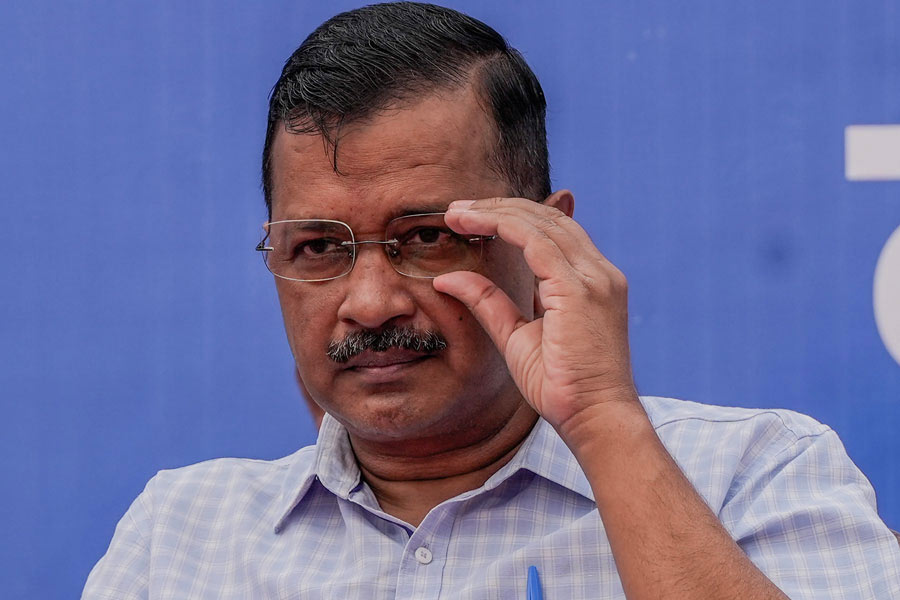The Supreme Court on Friday granted interim bail to Delhi chief minister Arvind Kejriwal in the Enforcement Directorate’s money-laundering case relating to a now-scrapped excise policy, but he has to remain in jail in connection with a parallel case the CBI registered last month.
While granting bail, the apex court referred to a larger (three-judge) or constitution (five-judge) bench the question of the extent of the ED’s power to arrest an accused under Section 19 of the Prevention of Money Laundering Act (PMLA), 2012.
With this, the court disposed of Kejriwal’s plea challenging his March 21 arrest as arbitrary and unnecessary.
The bench of Justice Sanjiv Khanna and Justice Dipankar Datta left it to Kejriwal’s conscience whether to continue as chief minister despite his arrest.
“Given the fact that right to life and liberty is sacrosanct, and Arvind Kejriwal has suffered incarceration of over 90 days, and that the questions referred to above require in-depth consideration by a larger bench, we direct that Arvind Kejriwal may be released on interim bail...,” the 64-page judgment, authored by Justice Khanna, said.
“...While we do not give any direction, since we are doubtful whether the court can direct an elected leader to step down or not function as the chief minister or as a minister, we leave it to Arvind Kejriwal to take a call. Larger bench, if deemed appropriate, can frame question(s) and decide the conditions that can be imposed by the court in such cases.”
To the larger bench, the apex court referred the following questions of law:
Whether the “need and necessity to arrest” is a separate ground to challenge an arrest order passed in terms of Section 19(1) of the PMLA.
Whether “need and necessity to arrest” refers to the satisfaction of formal parameters for arrest, or to personal grounds relating to the facts and circumstances of the case.
If questions (a) and (b) are answered in the affirmative, what are the parameters and facts to be taken into consideration by the court while examining the question of “need and necessity to arrest”?
Last month, the trial court granted Kejriwal regular bail in the ED case but Delhi High Court stayed it. A day before the apex court was to hear Kejriwal’s appeal against the stay order, the CBI arrested him in a corruption case relating to the excise policy, prompting charges of vindictiveness and dictatorship.
Kejriwal later withdrew the appeal but has sought bail in the CBI case before the trial court.
The bail conditions set by the apex court on Friday include bonds of Rs 50,000 with a surety of like amount, and a bar on Kejriwal from (a) visiting the chief minister’s office or the Delhi secretariat; (b) Signing official files unless forced by the necessity to obtain the lieutenant governor’s clearance or approval; (c) commenting on his role in the case; (d) interacting with any witness, or (e) accessing any files connected to the case.










